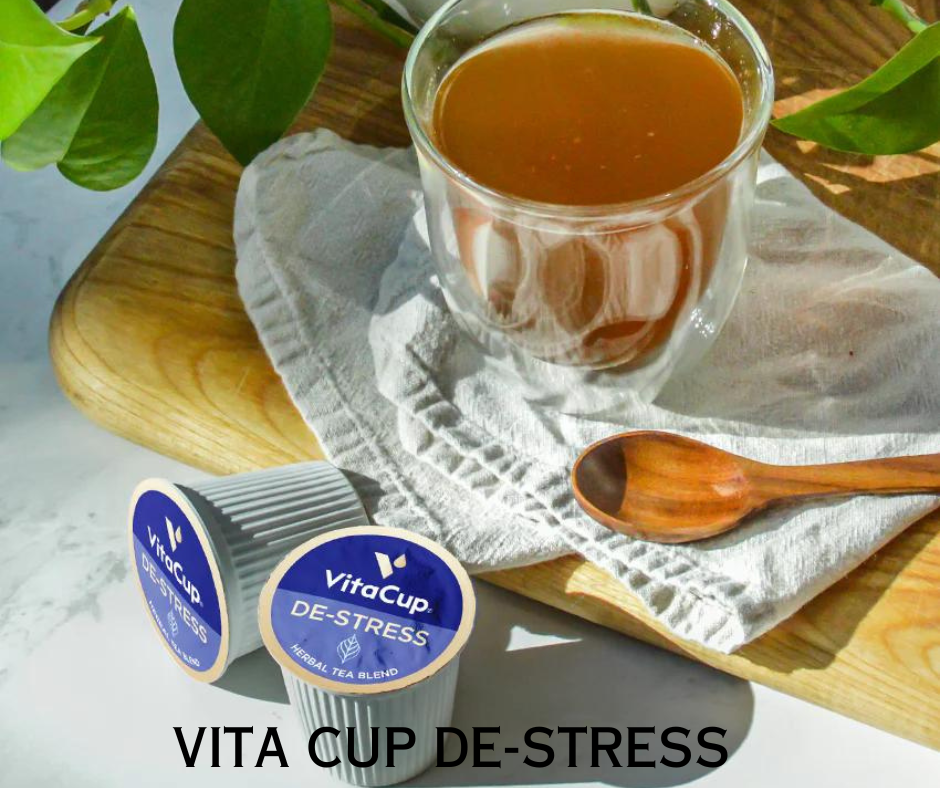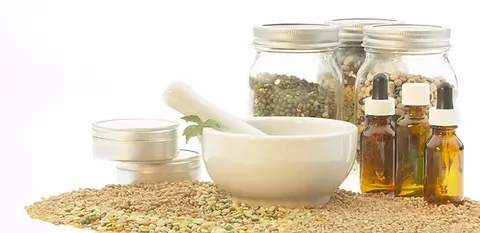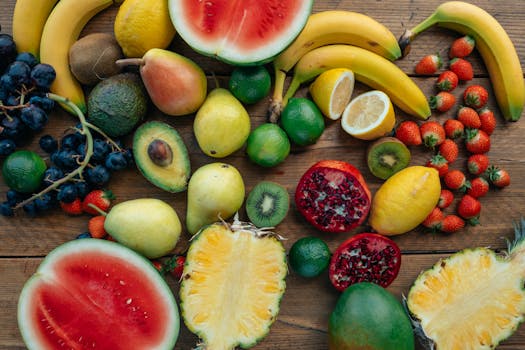
🌱 As someone passionate about
As a nutritionist, I am often asked about the importance of vitamins in our diet. Vitamins are organic compounds that are essential for our body’s proper functioning. They play a crucial role in maintaining our health and preventing various diseases. In this article, I will discuss the six essential vitamins, their sources, and how they contribute to our overall health.
Vitamin A: Vision and Growth
-
- Found in animal-based foods like liver, eggs, and dairy, as well as plant-based foods such as carrots, sweet potatoes, and spinach.[1]
Vitamin B Complex: Energy and Metabolism
-
- Found in whole grains, meat, fish, and leafy greens.[2]
Vitamin C: Immunity and Repair
-
- Found in citrus fruits, strawberries, kiwi, tomatoes, broccoli, and bell peppers.[3]
Vitamin D: Bone Health and Immune Function
Turmeric, Vitamins B & D for Energy in Recyclable K-Cup Compatible Pods
-
- Obtained through sunlight exposure and foods like fatty fish, egg yolks, and fortified dairy products.[4]
Vitamin E: Antioxidant Protection
-
- Found in nuts, seeds, vegetable oils, and leafy greens.[5]
Vitamin K: Blood Clotting and Bone Metabolism
-
- Found in leafy greens like spinach and kale, as well as in broccoli and Brussels sprouts.[6]
🍊 Fruits and vegetables, meat and dairy, nuts, seeds, and oils are excellent sources of these essential vitamins. A balanced diet incorporating these foods ensures optimal vitamin intake for overall health and well-being.

Vitamin A: Vision and Growth
Vitamin A is a fat-soluble vitamin that is crucial for maintaining healthy vision and promoting growth and development. It is found in animal-based foods such as liver, eggs, and dairy products, as well as in plant-based foods such as carrots, sweet potatoes, and spinach.
Vitamin B Complex: Energy and Metabolism
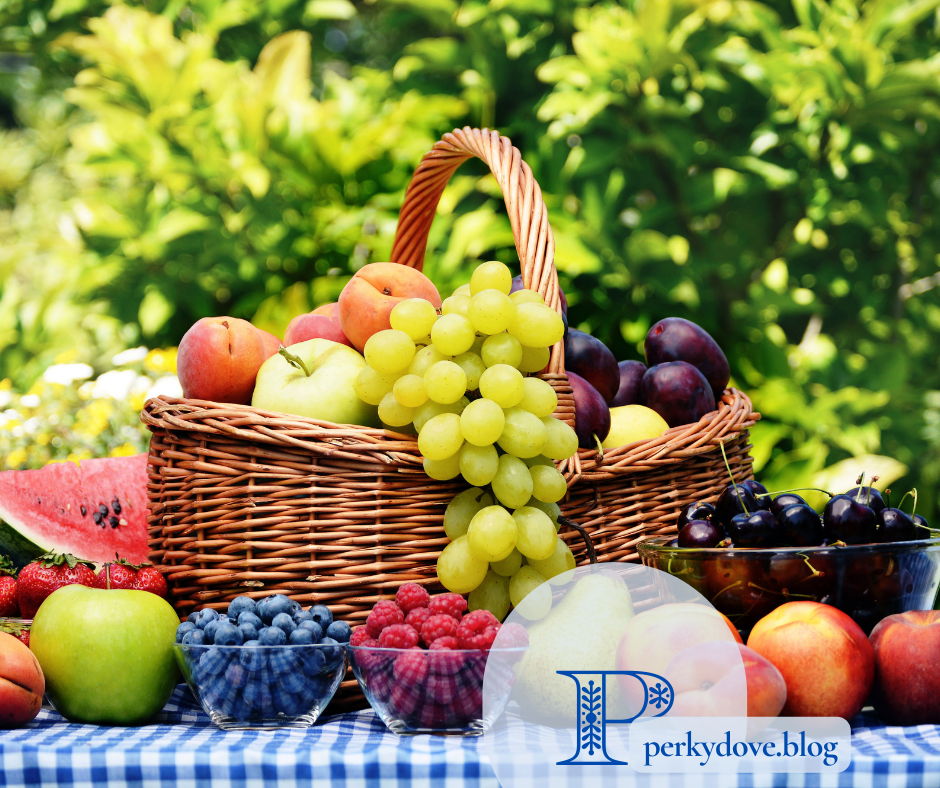
The B vitamins are a group of water-soluble vitamins that play a vital role in energy production and metabolism. They are found in a variety of foods such as whole grains, meat, fish, and leafy greens. There are eight B vitamins, including thiamin, riboflavin, niacin, pantothenic acid, pyridoxine, biotin, folate, and cobalamin.
Vitamin C: Immunity and Repair
Vitamin C is a water-soluble vitamin that is essential for maintaining a healthy immune system and promoting tissue repair. It is found in citrus fruits, strawberries, kiwi, tomatoes, broccoli, and bell peppers.

Vitamin D: Bone Health and Immune Function
Vitamin D is a fat-soluble vitamin that is crucial for maintaining healthy bones and teeth. It also plays a role in regulating the immune system and reducing inflammation. Vitamin D can be obtained through exposure to sunlight and through foods such as fatty fish, egg yolks, and fortified dairy products.
TruSkin Vitamin C Super Serum with Niacinamide, Retinol, Hyaluronic & Salicylic Acid (BHA) – All-in-One Anti Aging Facial Serum for Brightening, Firming, Dark Spots, Discoloration – 1 fl oz
Vitamin E: Antioxidant Protection
Vitamin E is a fat-soluble vitamin that acts as an antioxidant, protecting our cells from damage caused by free radicals. It is found in nuts, seeds, vegetable oils, and leafy greens.
, Chicken Soup Packets, Grass-Fed Chicken and Beef Bone Broth Powder, 15g Protein Per Serving, Supports a healthy gut, 7 Count
Vitamin K: Blood Clotting and Bone Metabolism
Vitamin K is a fat-soluble vitamin that is essential for blood clotting and bone metabolism. It is found in leafy greens, such as spinach and kale, as well as in broccoli and brussels sprouts.
Vitamins are essential for our body’s proper functioning and overall health. A balanced diet that includes a variety of foods from all food groups can provide us with the necessary vitamins to maintain optimal health.
Natural Sources of Vitamins
As someone who is passionate about

Fruits and Vegetables
Fruits and vegetables are excellent sources of vitamins. Vitamin A can be found in carrots, sweet potatoes, and spinach. Oranges, strawberries, and kiwis are all high in vitamin C. For vitamin K, try eating more leafy greens like kale and collard greens.
Meat and Dairy
Meat and dairy products are also good sources of vitamins. Vitamin B can be found in beef, chicken, and fish. Milk and cheese are high in vitamin D. Vitamin E can be found in nuts like almonds and peanuts.
Nuts, Seeds, and Oils
Nuts, seeds, and oils are another great source of vitamins. Vitamin E can be found in sunflower seeds and hazelnuts. Vitamin K can be found in oils like olive oil and canola oil.
Vitamin Deficiencies and Health Risks

Vitamin deficiencies can lead to a variety of health problems. Here are a few examples:
-
- Deficiencies in vitamins can lead to various health problems such as night blindness, anemia, scurvy, rickets, nerve damage, and excessive bleeding.[7]
💊 While supplements can be beneficial, they should not replace a balanced diet. Consult with a healthcare professional for personalized recommendations.
It’s important to get enough vitamins in your diet to avoid these health risks. If you’re concerned about your vitamin intake, talk to your doctor or a registered dietitian. They can help you develop a balanced diet that meets your nutritional needs.
Vitamins are essential for our overall health and well-being. Here are some key sources of vitamins A, B, C, D, E, and K:
Vitamin A: This vitamin can be found in foods such as sweet potatoes, carrots, spinach, and liver. It is important for maintaining healthy vision, immune function, and skin health.^1
Vitamin B: There are several types of vitamin B, and they can be found in a variety of foods such as whole grains, leafy greens, nuts, and meats. They play a crucial role in energy production, brain function, and red blood cell formation.^2
Vitamin C: This vitamin is abundant in citrus fruits, strawberries, bell peppers, and broccoli. It is essential for collagen production, wound healing, and immune function.^3
Vitamin D: Our bodies can produce vitamin D when our skin is exposed to sunlight, but it can also be found in foods such as fatty fish, egg yolks, and fortified dairy products. Vitamin D is important for bone health, immune function, and mood regulation.^4
TruSkin Vitamin C Super Serum with Niacinamide, Retinol, Hyaluronic & Salicylic Acid (BHA) – All-in-One Anti Aging Facial Serum for Brightening, Firming, Dark Spots, Discoloration – 1 fl oz
Vitamin E: This vitamin is found in nuts, seeds, and vegetable oils. It acts as an antioxidant, protecting our cells from damage, and is important for immune function and skin health.^5
Vitamin K: Leafy greens such as kale, spinach, and collard greens are rich sources of vitamin K. This vitamin is important for blood clotting and bone health.^6
Supplementation and Diet Planning:
While it is important to get vitamins from our diet, sometimes it can be challenging to consume enough of certain vitamins. In these cases, supplementation may be necessary. However, it is important to note that supplements should not be used as a replacement for a healthy diet.
When planning your diet, it is important to include a variety of foods to ensure that you are getting all of the essential vitamins and nutrients. A balanced diet that includes plenty of fruits, vegetables, whole grains, and lean proteins can help ensure that you are meeting your nutritional needs.
Vitamin Sources and Their Importance
As someone who is interested in maintaining a healthy lifestyle, I have learned about the importance of vitamins in our diets. There are six essential vitamins that are important for our bodies: A, B, C, D, E, and K. Each of these vitamins plays a unique role in keeping us healthy.
Vitamin A
Vitamin A is important for maintaining healthy vision, skin, and immune function. It can be found in foods such as carrots, sweet potatoes, spinach, and liver1.
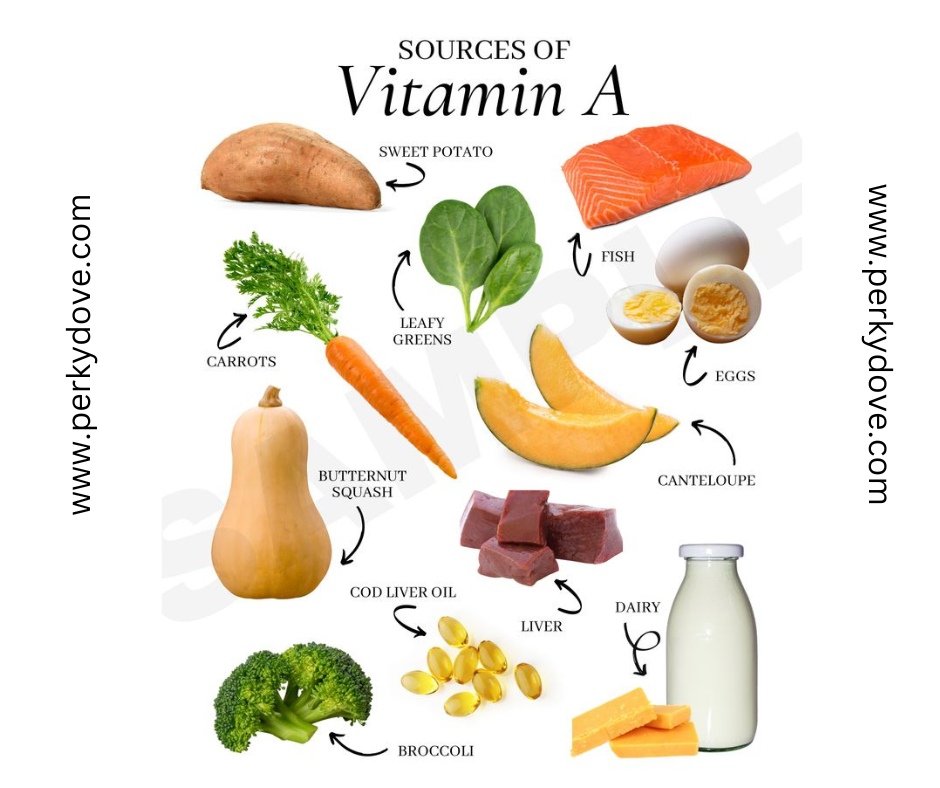
Vitamin B
There are eight B vitamins, each of which plays a different role in our bodies. They are important for maintaining healthy skin, eyes, liver, and nervous system2. Foods that are high in B vitamins include whole grains, meat, fish, and leafy greens.
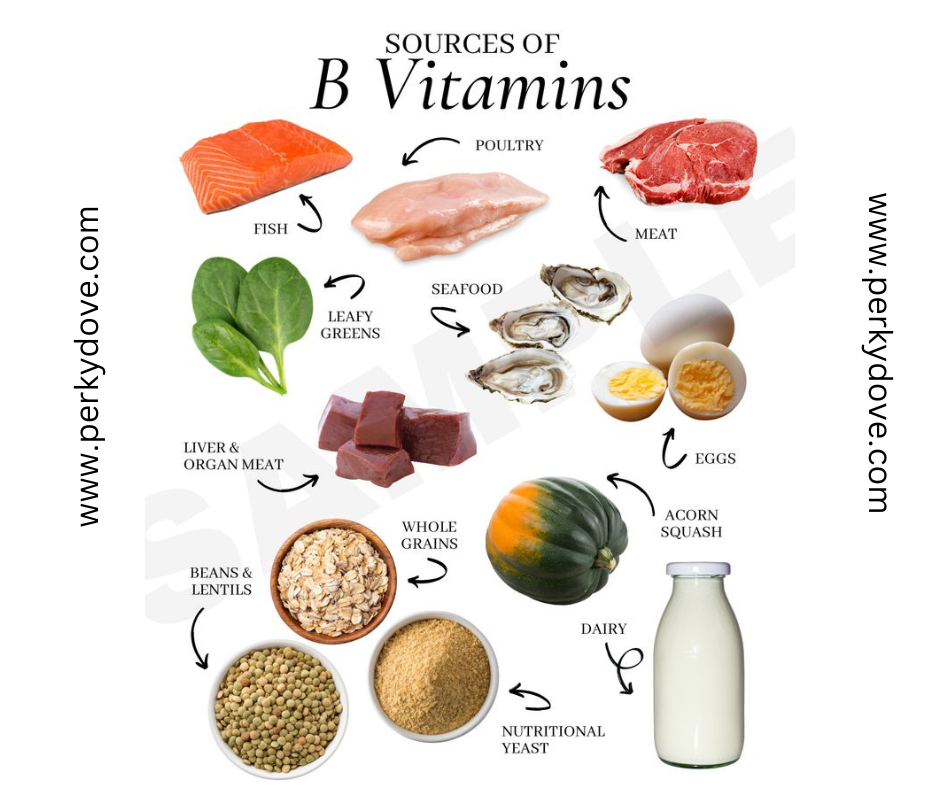
Vitamin C
Vitamin C is important for maintaining a healthy immune system and for the growth and repair of tissues in our bodies. It can be found in foods such as citrus fruits, strawberries, bell peppers, and broccoli3.
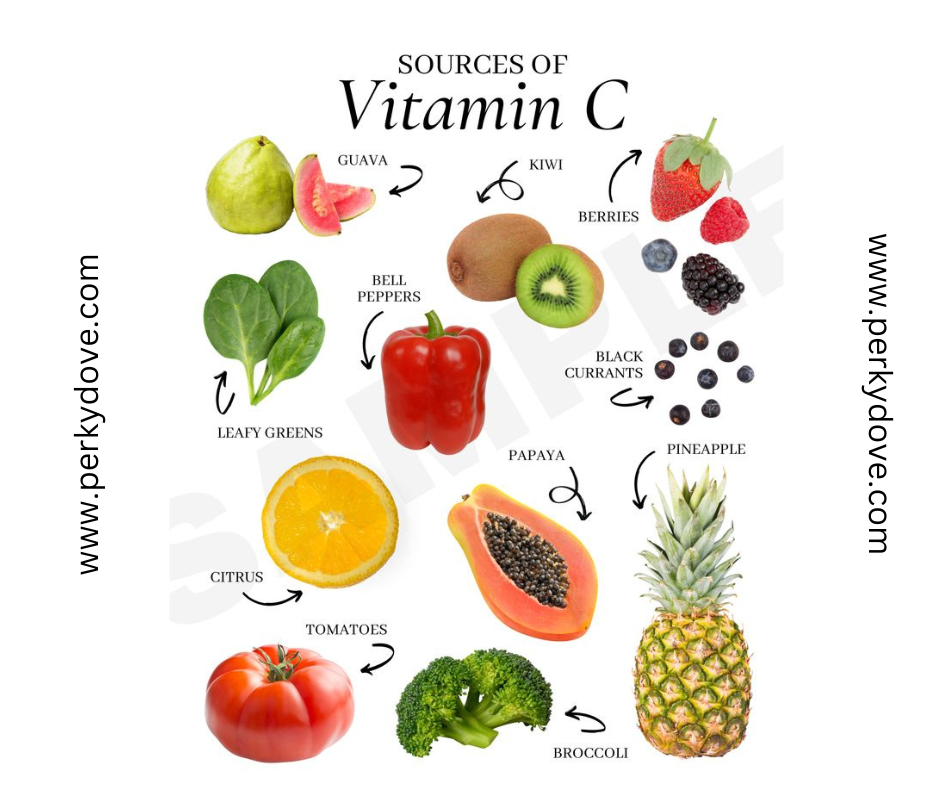
Vitamin D
Vitamin D is important for maintaining healthy bones and teeth. Our bodies can produce vitamin D when our skin is exposed to sunlight, but it can also be found in foods such as fatty fish, egg yolks, and fortified milk4.
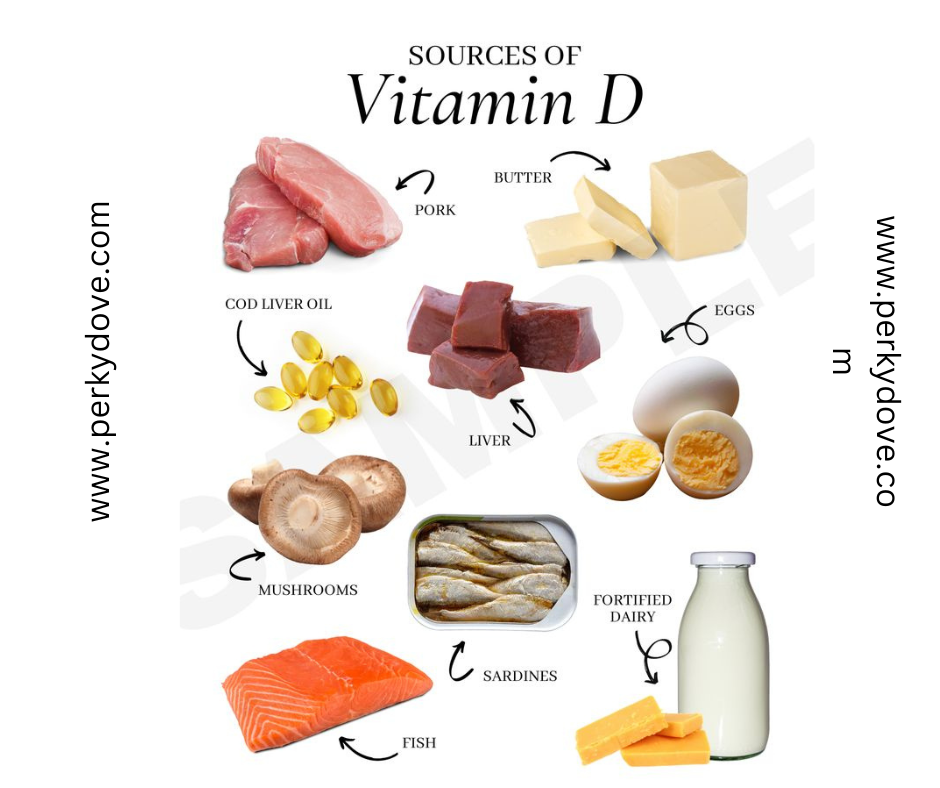
Vitamin E
Vitamin E is an antioxidant that helps protect our cells from damage. It can be found in foods such as nuts, seeds, and leafy greens5.
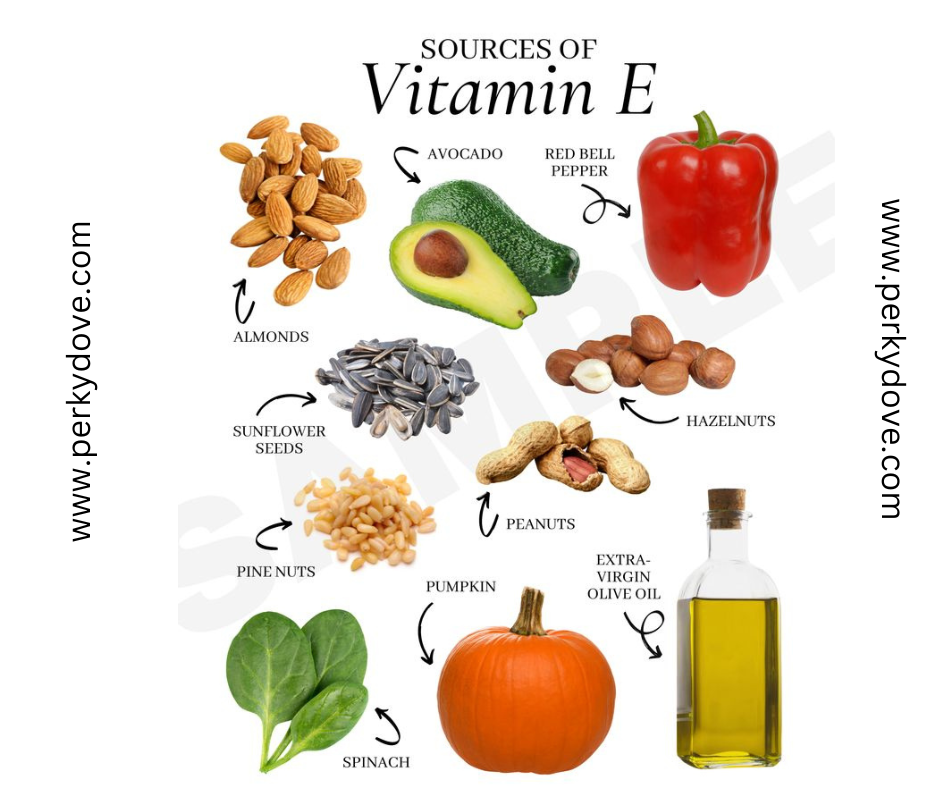
Vitamin K
Vitamin K is important for blood clotting and for maintaining healthy bones. It can be found in foods such as leafy greens, broccoli, and liver6.
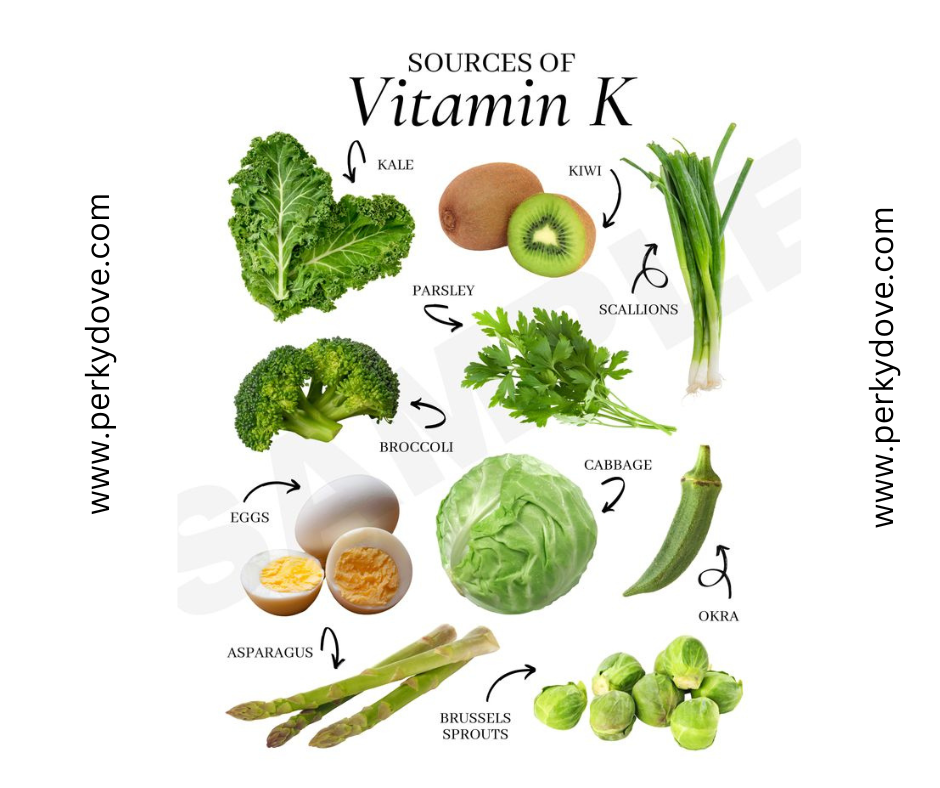
Overall, it is important to consume a variety of foods in order to get all of the vitamins that our bodies need. If you are concerned that you are not getting enough of a particular vitamin, talk to your doctor or a registered dietitian for personalized recommendations.
Vitamins are essential nutrients for our body that help maintain good health and prevent diseases.

Frequently Asked Questions:
What are the key differences between fat-soluble and water-soluble vitamins?
Fat-soluble vitamins (A, D, E, and K) are stored in the body’s fat tissues and can accumulate to toxic levels if consumed in excess. Water-soluble vitamins (B and C) are not stored in the body and are excreted through urine.
Which vitamins are essential to take daily due to their water-soluble nature?
Vitamins B and C are water-soluble and need to be consumed daily since they are not stored in the body.
How does vitamin C differ in solubility and daily intake requirements compared to other vitamins?
Vitamin C is water-soluble and needs to be consumed daily. Unlike other vitamins, the body cannot produce vitamin C, so it must be obtained through diet or supplements.

Can you list natural food sources for vitamins A, B, C, D, E, and K?
Vitamin A: liver, eggs, dairy products, carrots, sweet potatoes, spinach.
Vitamin B: meat, fish, dairy products, leafy greens.
Vitamin C: citrus fruits, berries, kiwi, broccoli.
Vitamin D: fatty fish, egg yolks, fortified dairy products.
Vitamin E: nuts, seeds, vegetable oils.
Vitamin K: leafy greens, broccoli, Brussels sprouts.
Discover the Finest Tea Brands
Perky Dove Coffee – America’s Beloved Brew: A Coffee Tale Beyond Caffeine
Embark on a journey beyond caffeine with Perky Dove Coffee. While our roots lie in exceptional coffee, we also celebrate the world of tea, recognizing it as an art form with a history as diverse as its flavors. Join us as we delve into the rich tapestry of tea culture, exploring its nuances and sharing its beauty with you.
What are the unique roles and health benefits of each vitamin from A through K?
Vitamin A: vision, skin health, immune system.
Vitamin B: energy production, brain function, cell metabolism.
Vitamin C: antioxidant, immune system support.
Vitamin D: bone and teeth health, calcium absorption.
Vitamin E: antioxidant, protection against oxidative stress.
Vitamin K: blood clotting, bone health.
Which vitamin is considered crucial for overall body health, and why?
All vitamins are essential for overall body health, but vitamin C is particularly crucial since it supports the immune system and helps the body fight off infections and diseases.
In conclusion, incorporating a variety of vitamin-rich foods into your diet is essential for maintaining overall health and well-being. By including a wide range of fruits, vegetables, whole grains, and lean proteins, you can ensure that you are getting the essential vitamins your body needs to function at its best. Remember to consult with a healthcare professional or nutritionist to determine your specific nutritional needs. Take the first step towards a healthier lifestyle today by making conscious choices to include these essential vitamin sources in your daily meals. Your body will thank you for it!
Footnotes
-
- “Vitamin A.” National Institutes of Health, Office of Dietary Supplements. https://ods.od.nih.gov/factsheets/VitaminA-HealthProfessional/ ↩
-
- “Vitamin B.” National Institutes of Health, Office of Dietary Supplements. https://ods.od.nih.gov/factsheets/VitaminB-HealthProfessional/ ↩
-
- “Vitamin C.” National Institutes of Health, Office of Dietary Supplements. https://ods.od.nih.gov/factsheets/VitaminC-HealthProfessional/ ↩
-
- “Vitamin D.” National Institutes of Health, Office of Dietary Supplements. https://ods.od.nih.gov/factsheets/VitaminD-HealthProfessional/ ↩
-
- “Vitamin E.” National Institutes of Health, Office of Dietary Supplements. https://ods.od.nih.gov/factsheets/VitaminE-HealthProfessional/ ↩
-
- “Vitamin K.” National Institutes of Health, Office of Dietary Supplements. https://ods.od.nih.gov/factsheets/VitaminK-HealthProfessional/ ↩
Experience the Power of “Blends With Benefits” Matcha Tea
Elevate your tea experience with “Blends With Benefits,” a premium plant-based Matcha tea infused with mouthwatering superfoods. This exceptional tea blend not only invigorates your taste buds but also infuses your day with a burst of positive energy.

